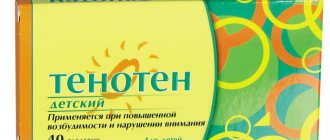It is known that the slightest change in hormonal levels can cause bad mood and the like. The body of a nursing mother undergoes hormonal changes. For this reason, she may suffer from sudden mood swings, insomnia, be extremely irritable, etc.
However, maternal nervous tension is not only not recommended, but is strictly contraindicated, as it can lead to milk burnout. Of course, many people wonder whether it is possible to resort to a sedative and whether it is dangerous for a newborn.
Doctors advise trying your best to hold on and not take sedatives. But if this cannot be done in any way, you can use such medications. The main thing is to choose the most suitable drug and drink it correctly. This will be discussed below.
Postpartum depression
Many young mothers remember with a smile the first months of their child’s life, others miss their tummy and the happy period of pregnancy - all people are different, and reactions, accordingly, may differ.
After childbirth, approximately 10-15% of women try to cope with depression, but only 3% are diagnosed with postpartum depression by a doctor, after which appropriate treatment is prescribed. In this case, only sedatives for nursing mothers will no longer help, and sometimes hospitalization is completely inevitable.
Why is mom nervous?
Due to constant fatigue, the young mother often gets nervous
No matter how long-awaited a child is, life changes a lot after his birth. New responsibilities appear, and no one has canceled the old ones. Childbirth is a difficult process from a psychological and physiological point of view. Just now the baby was nearby all the time, but now he is separate and requires constant attention.
It can be difficult for mom to cope with the responsibility that has fallen on her for the life of her loved one, for whom she has become the whole world. If a newborn cries often and for a long time, and the mother cannot understand what is wrong with him, this makes her feel bad.
In addition, childbirth can involve complications and surgical intervention, which affects not only the woman’s physical condition, but also her psychological one. Sometimes a newborn is diagnosed with a particular disease, in which case coping with stress becomes even more difficult.
Symptoms and influence of external factors
It is very important not to hesitate to seek qualified help if you notice the following symptoms:
- lack of strength,
- feeling of sadness and sadness,
- anxiety with panic attacks, headaches and increased heart rate,
- insomnia,
- loss of appetite,
- tearfulness,
- feeling of loneliness,
- depressed mood.
In this state, girls and women very often feel shame and consider themselves bad mothers, because they cannot fully feel the joy of the birth of a baby.
Strengthening negativity
An important role is played by factors (psychological, social, interpersonal) that can aggravate the condition:
- weak support from husband and family,
- difficult pregnancy,
- complications during childbirth,
- low socio-economic status,
- age over 40 years,
- alcoholism,
- lack of a permanent place of work or its complete cessation at the beginning of pregnancy,
- tendency to depression.
There is no doubt that postpartum depression harms not only you, but also your baby. You need to urgently consult a doctor and find out what sedatives nursing mothers can take.
In our country, unfortunately, this disease is rarely detected. A woman suffering from depression has no interest in interacting with her baby, which he so needs. Such children literally “absorb with milk” a tendency towards states of increased anxiety, suffer from low self-esteem and have difficulty expressing feelings.
How to help?
The first months with a newborn are a period of lack of proper sleep. Some children are restless. Tummy pain, constipation, weather changes - all this greatly affects their mood.
Caring for a child, washing, cooking and other women's duties take up a lot of time, and we completely forget about ourselves. Passing by the mirror, we notice a far from slender figure, bags under the eyes and “something incomprehensible on the head.” Where can you get a positive attitude?
The first thing to do is pull yourself together. Don’t rush to run to the pharmacy and sweep all sedatives for nursing mothers off the shelves. Try going without medication first.
On your own
Here are some simple ways that will help you improve your mood without medications and remember your loved one:
- We ask for help. Yes, you have become a mother, but this does not mean that caring for your child lies entirely on your fragile shoulders. Dad, grandparents, aunts, uncles and other relatives - involve everyone who is ready to help you. After all, a walk in the fresh air does not require special skills in handling a baby.
- We rest more. Washing, cleaning and cooking are, of course, important things. But when choosing between two hours of sleep and a vacuum cleaner, it’s better to go with the first one. If you have a serious lack of sleep, then go to bed with your baby.
- Let's remember ourselves before pregnancy. What did you like to do before you found out that you would soon become a mother? Hobbies, sports, meeting with friends or shopping - do not suffer from remorse and take time for yourself at least a couple of times a month.
- Going to the doctor. There is a lot of information in various sources about sedatives for nursing mothers, but we encourage you to contact professionals, especially when it comes to more serious antidepressant drugs. Do not hesitate to bother the doctor, because the baby has only one mother, and she should be healthy.
Sedative for nursing mothers
Pregnancy, childbirth and the postpartum period are the most exciting moments in the life of any woman.
But besides the joy of a new status and contemplation of her own newborn, there often comes a moment when a young mother cannot understand her feelings... Changing hormonal levels, reality not meeting expectations, general fatigue, anxiety, insomnia, apathy and a feeling of powerlessness - all this does not refers to the ideal idea of motherhood. And also the eternal fear of losing breast milk...
The idea that “nerves” can cause milk to disappear is an absolute myth. And everything is explained by the fact that an excess of the hormone adrenaline, which is produced as a result of nervous tension, can block the hormone responsible for milk secretion (not production).
In simple terms, there is milk in the breast, but it does not flow out easily. That is why it is extremely important to monitor your mental balance and try to be more loyal to certain things.
As soon as you relax and “let go” of the situation, the milk will flow as it should.
If simple self-hypnosis and working on yourself do not give positive results, then you can look for other ways to help yourself so that fatigue and apathy do not develop into a more serious problem called postpartum depression. Let's try to find out ways that will help a nursing mother cope with stress, irritability, fatigue, and at the same time not harm her baby.
depositphotos.com
Sedative for breastfeeding: the pharmacy will wait...
Before you immediately run to the pharmacy for a “miracle remedy,” try to relax using non-medicinal methods. Drink a cup of tea, take a relaxing bath, and finally get some sleep. Let your helpers be with you during this period: husband, mother, sister or friend - those who are ready to sincerely help you, and not irritate you with their moralizing and unnecessary advice.
If the baby has already grown up (he is more than 3 months old), then you can safely arrange a few hours of rest.
Here everyone chooses based on their preferences: some enjoy sitting in silence with a book or knitting, while others need shopping or meeting friends like air.
Usually, after such “outings,” mothers feel as if they have a second wind, and they are ready to literally run to their child...
If there are no such helpers or the child is still very small, then you can relax with the baby. Usually mothers of babies suffer the most from the fact that they are deprived of communication and “cut off” from the world.
Fortunately, now the availability of the Internet allows you to communicate with like-minded people without leaving your home.
If you are not a supporter of virtual communication, look for friends among the same mothers in your area, take long walks using a sling, or simply put aside all household chores and sleep with your baby all day long...
Medicinal sedatives for a nursing mother
If the situation is critical and you decide to take a sedative, be careful and picky, as not all medications may be safe for you and your baby.
You can start with aromatherapy and herbal medicine; there are a lot of soothing herbal remedies.
However, most of them contain peppermint, which can reduce lactation to some extent, so be careful not to overdo it.
Some of the safest are the well-known valerian and motherwort. It is better if it is not an alcohol tincture, but tablets.
There are a lot of modern drugs (Novopassit, Persen and others) that can also help cope with stress.
However, before you “prescribe” yourself any antidepressant, be sure to consult your doctor, because not all drugs are equally suitable for all people. And they are prescribed to nursing mothers only in the most extreme cases.
What else can help?
There are a number of other effective sedatives for nursing mothers.
A relaxing bath with aromatic oils and at least half an hour of peace and quiet will perfectly help cope with fatigue and irritability.
Spend more time in the fresh air, relieve stress in the gym or swimming pool, or in yoga classes. But do not overdo it with the loads; for a nursing mother they should be minimal.
In the end, just give free rein to your tears, free yourself from the accumulated negativity. You are a living person and have the right to be weak. Don't blame yourself. Everything that is happening to you now is just a temporary phenomenon.
And after some time, you will remember your experiences with a smile, gain your own maternal experience and share it with the same young and extremely sensitive mothers as you yourself were just recently.
Enjoy motherhood!
No matter how hopeless the current situation may seem, no matter how hard and restless your soul is now, everything will pass. The main thing is not to get hung up and continue to live. Look at your baby, it’s much harder for him now - he finds himself in a new and unfamiliar world.
A newborn is very sensitive to his mother's mood. And he vitally needs your love, warmth and the most delicious milk in the world.
And your best sedative can be the incomparable smell of your baby, his first smile and the immense happiness from the realization that you are now a MOTHER.
Lactation consultant, Tarasyuk Inna
Source: https://active-mama.com/uspokoitelnoe-dlya-kormyashhej-mamy.html
What harmless sedatives can a nursing mother use?
Of course, it is better to opt for herbs. The most famous is valerian. It is produced in the form of an alcohol tincture, filter bags and tablets. By the way, valerian will be useful for a nursing mother, but not only. Doctors advise soaking a piece of cotton wool in a decoction of valerian and hanging it over the crib. It is said to help the baby sleep well.
Another herb that deserves attention is motherwort. It is often recommended to alternate it with valerian. One problem is that it tastes very unpleasant when taken as a decoction. Yes, and motherwort is often prescribed not as a mild sleeping pill, like valerian, but for tachycardia, panic attacks, heart problems, etc.
Other soothing herbs for nursing mothers approved for use are mint and lemon balm. You can add them to your food and drinks. By the way, these herbs also increase immunity, and therefore are doubly useful.
And now about the most popular, widely advertised drugs, which have virtually no contraindications.
Glycine
This dietary supplement is prescribed for various stressful situations, including when mental concentration is necessary, for example, during exams. In addition, for neuroses and emotional stress, sleep disorders.
Contraindications to the medicine include only individual intolerance. Can be used even by small children under three years of age. Thus, Glycine for nursing may become the drug of choice, if indicated.
And if you can’t get your nerves in order with the help of safe and affordable herbal infusions.
Tenoten
Used for anxiety, severe stress, and depression. Also available in children's form. Can be taken in courses of up to three months. In some cases, up to six months intermittently.
However, the safety of taking the drug during pregnancy and lactation has not been clearly established. Therefore, before taking these pills, you need to weigh the possible benefits of treatment and the risks.
Of course, it is better for the doctor to make the conclusions directly.
Persen
Used to treat anxiety, insomnia, nervous excitability. But it has many contraindications for use.
These include children (up to 12 years), diseases of the digestive system, low blood pressure, and increased sensitivity. But not pregnancy and lactation. So, these are safe sedatives for nursing mothers.
By the way, they include the herbs that we wrote about earlier: valerian, mint, lemon balm. It is a sedative of plant origin and a mild antispasmodic.
Tea
Almost all sedatives for nursing mothers are commercially available. The most popular are herbal infusions, which not only tidy up the nervous system, but also have a positive effect on lactation. A fragrant drink with dill seeds, cumin, fennel, chamomile or anise will also have a beneficial effect on the digestion of the little one.
You can purchase the mixture at the pharmacy or pay attention to soothing tea for nursing mothers from one of the baby food manufacturers. The Russian brand “Babushkino Lukoshko” offers two types of drinks. For example, “Tea with Anise”, which contains anise, cumin, clover, nettle, lemon balm and fennel.
A similar set of components is found in drinks from the German brand HIPP. The only drawback is that granulated tea contains sugar. This improves the taste of the herbal mixture, but is not always beneficial.
So, now we know exactly what kind of sedative is suitable for nursing mothers.
Nature soothes
The herbal collection of mint is a mild sedative. Can be used as a tea by adding chamomile. It must be remembered that mint can help reduce lactation.
- Chamomile eliminates mild hysteria, insomnia, and increased anxiety. It has a good effect on the child's digestion. It is not recommended to overuse chamomile. Chamomile tea can be consumed no more than two cups per day.
- Melissa normalizes sleep and calms the nervous system. Used as tea or decoction, you can add mint. When breastfeeding, the product increases lactation.
- Motherwort can be in the form of an herbal tea, infusion or tablets. To make the drug, Motherwort Cordis extract is used. It has pronounced sedative and relaxing properties. No side effects were observed when using motherwort. an exception may be an allergy to a plant. Scientists have not studied the effect of the plant through mother's milk on the child. Care should be taken when using the product. Use in moderate doses and monitor the baby. When breastfeeding, motherwort tincture should not be abused, as the mixture contains alcohol and helps reduce the mother's milk supply. The effect of the drug can be observed after several weeks.
- Herbal tea or tablets of valerian have a pronounced sedative effect and help normalize sleep. The roots and stems of the plant are used to make the medicine. Doctors do not know what effects valerian has on the baby’s health. It is not recommended to take the drug while breastfeeding a newborn. In extreme cases, valerian can be taken one tablet three times a day. The indicated dosage should not be increased, as this may lead to the opposite effect. When using the product, you must monitor your baby.
Proven method
Unfortunately, regular tea drinking is not always enough to find harmony and tranquility. Many girls and women, on the advice of doctors, prefer a proven remedy - valerian. It successfully copes with mild mental disorders, has a minimal number of side effects and does not affect the quality of breast milk.
Traditionally, the drug is available in two forms:
- drops,
- calming pills.
For nursing mothers, taking drops is strictly prohibited. Of course, they work much faster, but the alcohol content is still cause for concern. Another option is to brew valerian root yourself.
How does it affect?
Taking the drug should be monitored by two specialists at once: a pediatrician and the young mother’s attending physician. When using valerian, the baby's condition may change - sleep time increases or relaxation and lethargy are observed when sucking.
Valerian should not be taken by hypotensive patients: blood pressure drops even more, which can lead to lethargy, weakness and loss of consciousness. In case of individual intolerance, a woman experiences an allergic reaction; in rare cases, the opposite effect is observed - sleep disturbance or nervous overexcitation.
It is believed that valerian is not the most effective sedative for nursing mothers. Very often, doctors prescribe it along with other drugs, which we will talk about later.
Sedative for nursing mothers, what sedative herbs, tablets can be used for a nursing mother | Oracle
Can a nursing mother take a sedative and, if so, what sedative can she take while breastfeeding so as not to harm the baby? A pregnant and lactating representative of the fair sex should carefully monitor everything she eats and, namely, the medications she takes. In general, it is better for breastfeeding women not to take any medications. However, if depression literally sets in, sometimes it is necessary to decide on a choice in favor of medications or herbs.
What harmless sedatives can a nursing mother use?
Of course, it is better to opt for herbs. Valerian is one of the most popular. It is produced in the form of an alcohol tincture, filter bags and tablets. By the way, valerian will be useful for a nursing mother, but not only. Doctors recommend soaking a piece of cotton wool in a decoction of valerian and hanging it over the baby’s crib. It is said to help the baby sleep soundly.
Another herb worthy of attention is motherwort. It is often recommended to replace it with valerian. One problem is that its taste is very unpleasant if taken in the form of a decoction. Yes, and motherwort is often prescribed not as a mild sleeping pill, like valerian, but for tachycardia, panic attacks, heart problems, etc.
Other soothing herbs for nursing women that are approved for use are mint and lemon balm. You can add them to your food and drinks. By the way, these herbs also increase immunity, and therefore are doubly useful.
And now about quite popular, widely advertised drugs that actually have no contraindications.
This dietary energy supplement is prescribed for a wide variety of stressful situations, including when mental concentration is needed, for example, during exams. Also, for neuroses and emotional stress, sleep disorders.
Contraindications to the medicine include only individual intolerance. It can be used even by children under three years of age. Likewise, Glycine for nursing may become the drug of choice, if otherwise indicated.
And if you can’t get your nerves in order with the help of safe and affordable herbal infusions.
Used for anxiety, severe stress, and depression. Also available in children's form. Can be taken in courses of up to 90 days. In most cases, up to six months with a break.
Price 2 metus
However, the safety of taking the drug during pregnancy and lactation has not been clearly established. Therefore, before taking these pills, it is necessary to weigh the potential benefits of treatment against the dangers. Of course, it is better for the doctor to make the conclusions.
Used to treat anxiety, insomnia, nervous excitability. But it has many contraindications for use. These include childhood (up to 12 years), diseases of the digestive system, very low levels of arterial pressure, and very high sensitivity.
However, not pregnancy and lactation. So, these are safe sedatives for nursing mothers. By the way, they contain the herbs that we wrote about earlier: valerian, mint, lemon balm. It is a sedative of plant origin and a mild antispasmodic.
Novopassit
This drug is prescribed for irritability, neuroses, fears, absent-mindedness, insomnia, tension headaches, irritable bowel syndrome, and itchy dermatoses.
5 years ago
The drug is harmful to children under 12 years of age and those with individual intolerance to the elements of the drug. Regarding pregnancy, it is said that the drug can be used in cases where the expected benefit to the mother is greater than the possible risk to the health of the fetus.
It is possible to take the drug and feed
chest. However, it is necessary to take into account that the drug contains St. John's wort. And this herb affects the effectiveness of individual drugs used.
For example, it reduces the effectiveness of oral contraceptives, which can lead to unwanted pregnancy.
Similarly, a nursing mother can use sedatives:
- valerian;
- motherwort;
- mint;
- lemon balm;
- glycine;
- tenoten;
- person;
- novopassit and any other drugs and dietary supplements with a similar composition.
Source: https://oracal.net/zdorove/uspokoitelnoe-dlja-kormjashhih-mam-kakie.html
Motherwort
Many sedatives for nursing mothers are based on natural ingredients. For example, motherwort, which comes in three forms:
- Pills
— Filter bags for brewing
— Alcohol tincture (contraindicated during lactation)
When motherwort will help you:
- For insomnia. Overwork, internal worries and hormonal changes sometimes interfere with normal rest. A new mother doesn't have much precious time. With regular use, motherwort will certainly improve your sleep.
- With high blood pressure. During lactation, nervous excitement and headaches “give up without a fight” thanks to motherwort.
- With difficulty breathing and tachycardia. Frequently carrying a baby in your arms or lifting a stroller can sometimes throw off your heart rate.
Prevention of nervousness - how to cheer up your mother?
First, you need to stop striving to do everything, everywhere on your own, allow yourself sleep, rest, a change of environment, communication with friends, and shopping. All this can be adjusted over time to suit the baby’s daily routine.
It is important to eat well and try not to feel hungry for a long time. An exhausted and hungry woman will still not be able to give enough attention and care to the child. Sometimes you can allow yourself to eat a couple of pieces of natural dark chocolate. It perfectly relieves stress and improves mood.
You need to try to relax, yoga classes are very helpful for this. They will also help with pain from carrying a child in your arms for a long time, possible displacement of the vertebrae, and dysfunction of internal organs.
Sedatives during breastfeeding are allowed under medical supervision and subject to recommended dosages. You shouldn’t be patient and hope that everything will go away on its own. The cause of irritability and depression can be much more serious than ordinary fatigue. In this case, it is important to seek help from a specialist in time.
"Glycine"
The well-known drug “Glycine” is another answer to the question of what sedatives can be used for breastfeeding women. This is a protein amino acid that is easily absorbed by our body.
The range of applications is quite large:
- regulation of metabolism,
- relieving fatigue and psycho-emotional stress,
- reduction of excitability and nervousness,
- increased mental performance,
- normalization of sleep rhythms.
The drug has a cumulative effect (course of treatment is 2-4 weeks), so its use must be under the supervision of the attending physician. Sometimes “Glycine” is prescribed to newborns for restless sleep, so a small amount of the substance entering through milk will not cause harm.
"Persen"
Many people believe that Persen is a good sedative for nursing mothers. One of the main advantages is the natural composition, which contains extracts of valerian, lemon balm and peppermint.
Despite mint, which can affect the process of breastfeeding, experts recommend the drug as a sedative for nursing mothers.
“Persen” is indicated for the following conditions:
- insomnia,
- increased nervous excitability,
- irritability.
The drug does not have a cumulative effect, it calms you within half an hour after taking it. Does not affect the ability to drive a car.
Sedatives for breastfeeding
The most popular sedatives for breastfeeding mothers are:
- natural: motherwort; valerian;
- medical: "Persen"; "Novo-Passit"; homeopathic medicines.
Let's take a closer look at each of them.
Motherwort. The product has two dosage forms: infusion and tablets. The active ingredient of the drug is motherwort. A distinctive feature of the product is the almost complete absence of side effects. The only exception is an allergic reaction to its active component. The calming effect comes slowly. A noticeable effect of motherwort occurs after at least 14 days of use.
Do I need to be careful when treating with motherwort? It is necessary, since this drug can change the properties of milk, also making it “sedative”. The child does not need sedation at all. Thus, if you are breastfeeding, it is better to use motherwort irregularly and in small doses. The most suitable dosage form for a nursing mother would be tablets, since the tincture contains alcohol that is harmful to the baby.
Valerian. The most famous sedative drug. The active components of the product are the stems and roots of the cat grass plant (also known as medicinal Valerian). There are no side effects for the mother who drinks this medicine, but for the child she is breastfeeding, it is still 100% unknown.
According to the E-Lactancia medical reference book, the positive effects of valerian extract on humans have not been confirmed. In turn, professor of pediatrics Thomas Hale in his book “Medicines and Mother’s Milk” claims that valerian can be used during lactation, but with extreme caution.
The maximum dose, in his opinion, should be 9 ml in liquid form and 2 grams in dry form. Otherwise, the opposite of the expected effect may occur (insomnia, irritability, anxiety). It is also extremely important when using valerian to closely monitor the child’s condition so as not to miss an allergic reaction, if any.
Persen. The medicine is a phytocomplex that includes the two above-mentioned plants and peppermint. The instructions for the medicine indicate that it is better not to use it when breastfeeding, since mint reduces milk production.
However, there is no experimental confirmation of this fact. However, mint has another drawback - the menthol it contains passes into breast milk, which the baby consumes, lowers blood pressure and has a negative effect on the baby's heart rate.
Novo-passit. A herbal preparation that includes seven plants at once, namely:
- valerian;
- hawthorn;
- lemon balm;
- hop;
- St. John's wort;
- passionflower;
- elderberry
According to the instructions, treatment with this sedative during lactation is prohibited, although there is no information that its active ingredients pass into milk.
Glycine. In general, glycine is an amino acid. It is part of proteins and is a completely natural substance for humans.
This amino acid has a wide spectrum of action, which includes:
- elimination of insomnia;
- relieving the feeling of fatigue;
- eliminating nervousness;
- improving brain function;
- stabilization of metabolism.
According to experts in the field of breastfeeding, taking glycine during lactation is safe and therefore acceptable.
A certain proportion of glycine will enter the child’s body through milk, but this is not dangerous, since it will not cause him any harm. But this does not eliminate the need for prior consultation with a doctor on the use of any drug, including this one.
Should I accept it or not?
Sometimes loneliness becomes an outlet. Half an hour of silence, a relaxing bath with essential oils or a walk in the fresh air - all this will help relieve some stress, distract you and put your thoughts in order. Ask your husband for a light massage or just spend time together.
New mothers struggle to maintain breastfeeding. During this period, taking any medications, even herbal ones, is undesirable. But if you feel that you are living at the limit, then it is advisable to contact a specialist. A competent doctor will assess your emotional state and select the appropriate sedative.
Remember that many girls and women face problems in the first months of motherhood. Usually we are ashamed of our weakness and embarrassed to ask for help even from our loved ones, but it is very difficult to cope with problems alone. Only a calm and happy mother can fully give affection and love to her baby.
Folk remedies
Young mothers can restore their strength and strengthen the nervous system with the help of the following folk remedies:
- Soothing herbal baths will help you relax and cope with increasing irritation. The following herbs can be added to warm water:
- valerian,
infusion of cones and pine branches,
- infusion of chamomile, nettle or sea buckthorn.
- Aromatherapy is a way of influencing the body using essential oils. As mentioned above, oils can be added to a bath or aroma lamp. A few drops of lavender, chamomile, or mint essential oil will restore peace of mind and lift your spirits. Aromatherapy also has contraindications, so you should consult your doctor before using it.
- A contrast shower will help not only in the fight against nervous tension, but also help strengthen the immune system. It ensures the production of endorphins (hormones of happiness), lifts your mood and energizes you.
You can use essential oils of lavender, lemon and jasmine. A bath with sea salt and bergamot is very relaxing. For health reasons, not everyone is recommended to take baths, so you should check with your doctor about contraindications.










